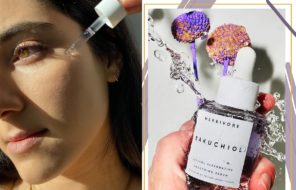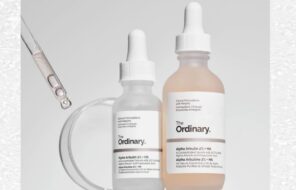Everyone wants soft, smooth, well-hydrated skin. The products you use on your body can go a long way to promote skin health, especially in the cooler months when the air is often drier.
When it’s time to reach for a moisturizer, though, it’s understandable if the options leave you scratching your head. Does it really matter if you choose a body cream or a body lotion? What’s the difference between the two?
Your skin type and concerns can affect whether body lotion or cream will suit your needs best. Here’s how to get the best results from each product.
What is body lotion?
Body lotion is thin and lightweight — you can usually pour it into your hand. Lotion ingredients can vary, but most lotions are based on a blend of the same types of ingredients:
- Emollients: promote soft, smooth skin (e.g., water, isopropyl palmitate, liquid vitamin E)
- Emulsifiers: keep repellent ingredients (e.g., water and oils) blended (e.g., cetyl alcohol)
- Humectants: attract and hold water (e.g., hyaluronic acid, glycerin)
- Occlusives: help lock in moisture and slow evaporation (e.g., lanolin oil)
Think of body lotion as a tall glass of water for your skin. Lotion has a lot of water in it, and the humectant ingredients it contains help attract water. For example, 1/4 teaspoon of hyaluronic acid can hold 1.5 gallons of water.
Lotions are a great choice if you want a lightweight moisturizer that absorbs easily. Lotion is less likely than some other products to leave a greasy, slippery residue on your skin. It doesn’t work as well as heavier moisturizers to create a barrier to lock in moisture in your skin, so it may not offer the heavy-duty hydration that people prone to dry skin may need.
What is body cream?
Body cream has a thicker consistency than body lotion, more like a creamy paste than a liquid. It contains the same general categories of ingredients as lotion but has a lower water concentration and a higher amount of oil. Body cream has closer to a 50:50 ratio of water to oil, according to several dermatologists.
More oil means body creams are generally better at creating a barrier to “lock in” moisture and make hydrating effects last longer.
Body creams are excellent for people who tend to have dry skin or live in areas where the air gets super dry. A rich cream can keep protecting and moisturizing skin under harsher conditions versus what a lotion can stand up against. Body cream’s higher oil content can also make it more likely to leave a lingering greasy feeling. Some body creams may increase the chances of breakouts if heavier ingredients clog pores.
How to choose between body cream and body lotion
Saying you have to pick between body lotion and body cream is like telling you to choose a jog or a HIIT session. They’re both good options — you just might prefer one over the other in specific scenarios. Here are a few factors that can nudge you in either direction.
Dry skin
If your skin is parched, you might need an extra-enriching product to help rebalance your skin and help it hold in moisture. If you’re not seeing the smooth, hydrated results you want with lotion, you may need a heavier body cream (or even an ultra-thick body butter for rough patches like elbows).
Acne-prone skin
If you struggle with breakouts on your shoulders, chest, and back, you need to balance multiple skin concerns. Well-moisturized skin can be less prone to breakouts because your body is less likely to compensate for dryness by overproducing oils. But ingredients in certain moisturizers, such as petrolatum, waxes, or some oils, can make too thick of a barrier and clog pores — which may lead to more breakouts.
Body creams have roughly equal parts water and oil, which may be too rich for some people’s skin. If you’re noticing skin irritation or breakouts, read the ingredients list carefully and consider switching to a lighter or gentler product. A dermatologist can give you a full list of which ingredients benefit or could irritate your skin.
Harsh environment
Certain unavoidable daily habits can be harsh on your skin. For example, if you wash your hands frequently, you may notice it’s easy for that skin to dry out or even get cracked, red, and irritated. Using lotion or cream can be part of maintaining the health of your skin. A cream that creates a skin barrier may be especially helpful in protecting against harsh skin conditions.
Time of application
Skincare works best when it becomes part of your routine. Applying lotion or body cream right after a shower can give you an extra boost of hydration. Ingredients like hyaluronic acid work most effectively on damp skin because they attract water immediately. If you’re hoping to “lock in” moisture, it makes sense to start by holding in moisture from your shower.
If you like to shower and apply skin products before bed, one possible downside of body cream is a greasy or sticky feeling on your pajamas or sheets. A lighter lotion may absorb more easily. Depending on your preferences for texture and how your skin reacts, you may choose a lotion at certain times of day and cream for others.
Your body moisturizer can be part of a soothing self-care ritual that benefits your overall skin health. Match your skin concerns with a moisturizer that provides the hydration you need and a texture that feels great every time you use it.





